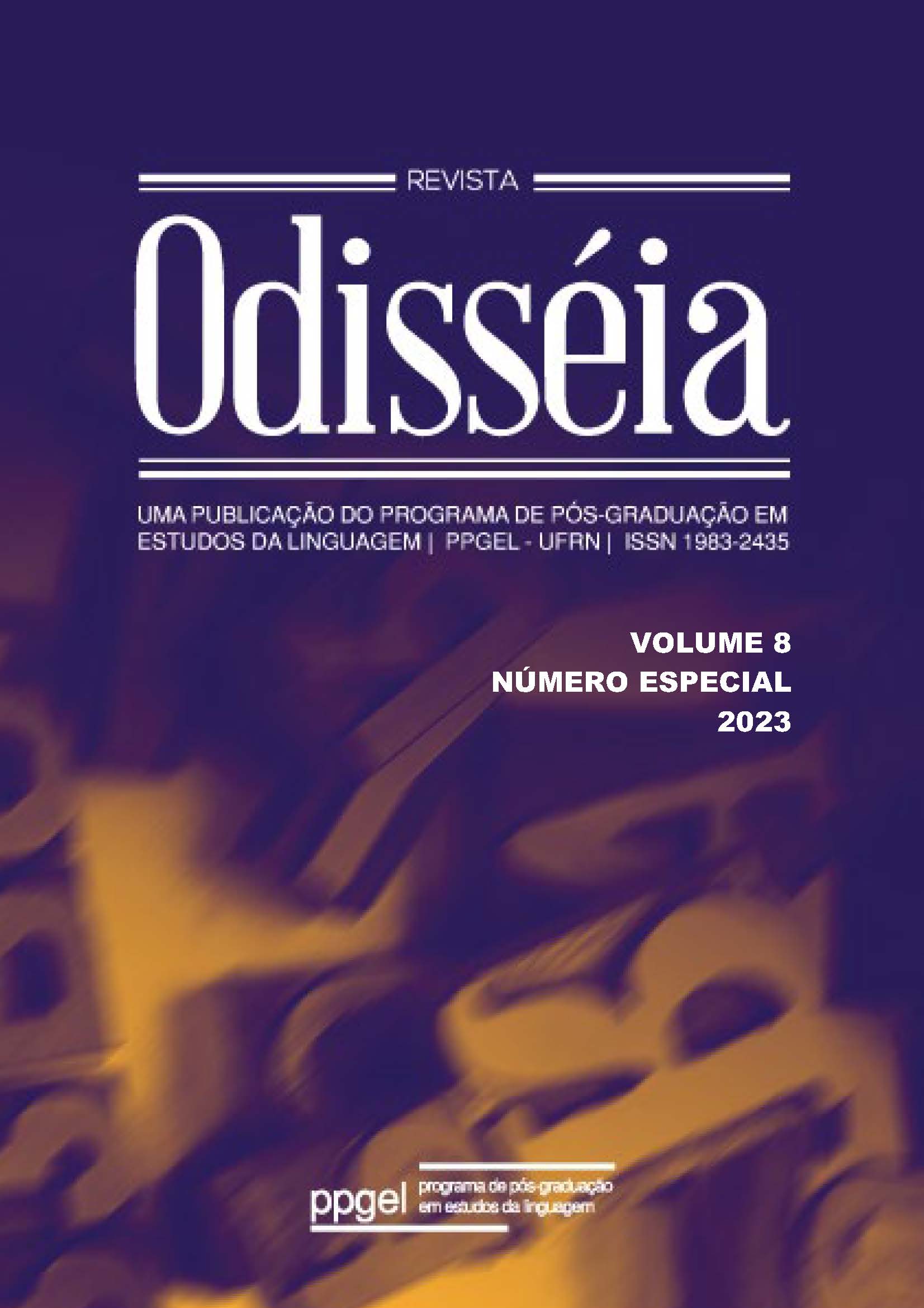Violence and the consumption of bodies in Tender is the Flesh, by Agustina Bazterrica
DOI:
https://doi.org/10.21680/1983-2435.2023v8nEspecialID32255Keywords:
Dystopia, Capitalist realism, Gender violenceAbstract
The book Tender is the Flesh, by Argentine writer Agustina Bazterrica, depicts a society in which a virus has spread among animals across the planet, making their flesh deadly to humans. Pressured by the meat industry, governments across the world sanction the breeding and reproduction of human beings as animals for slaughter and we are gradually introduced to the inner workings of a society where cannibalism is legalized. This article seeks to analyze this dystopian narrative through the lens of capitalist realism as proposed by Mark Fisher and discuss the instrumentalization of language and the representation of gender violence in the book considering the concept of absent referent as applied by Carol J. Adams. As a work of contemporary Latin American speculative fiction, we seek to investigate the parallels the book establishes with current social configurations and reflect on social roles often associated with the dystopian genre.
Downloads
References
A CARNE. Compositores: Marcelo Yuka, Seu Jorge e Ulisses Cappelletti. In: Do Cóccix até o Pescoço. Intérprete: Elza Soares. Maianga Discos, 2002. 1 CD, faixa 6 (3min39s).
ADAMS. Carol J. A Política Sexual da Carne: uma Teoria Feminista-Vegetariana. Tradução: Cristina Cupertino. 2. ed. São Paulo: Alaúde Editorial, 2018.
ADMIRÁVEL Gado Novo. Compositor: Zé Ramalho. In: A Peleja do Diabo com o Dono do Céu. Rio de Janeiro: Estúdios CBS, 1979. 1 CD, faixa 2 (4min53s).
BAZTERRICA, Agustina. A Literatura de Terror é um Canal das Emoções Sociais. Entrevista cedida à editora Darkside. Dark Blog, São Paulo, 06 jul. 2022a. Disponível em: https://darkside.blog.br/agustina-bazterrica-a-literatura-de-terror-e-um-canal-das-emocoes-sociais/. Acesso em: 10 dez. 2022.
BAZTERRICA, Agustina. Saboroso Cadáver. Tradução de Ayelén Medail. Rio de Janeiro: Darkside Books, 2022b.
BRASIL. Ministério da Agricultura, Pecuária e Abastecimento. Argentina: Relatório Agronegócio. [Brasília]: Ministério da Agricultura, Pecuária e Abastecimento, 17 fev. 2022. Disponível em: https://www.gov.br/agricultura/pt-br/assuntos/relacoes-internacionais/adidos-agricolas/argentina. Acesso em: 01 dez. 2022.
DAVIS, Angela. Mulheres, Classe e Raça. Tradução de Heci Regina Candiani. São Paulo: Boitempo, 2016.
FISHER, Mark. Realismo Capitalista: É Mais Fácil Imaginar o fim do Mundo do que o fim do Capitalismo? Tradução: Rodrigo Gonsalves, Jorge Adeodato, Maikel da Silveira [Coord.: Manuela Beloni, Cauê Ameni]. São Paulo: Autonomia Literária, 2020.
LE GUIN. Ursula K. A Mão Esquerda da Escuridão. Tradução de Susana L. de Alexandria. 3. ed. São Paulo: Aleph, 2019.
RIERA, Raquel. Somos o que Comemos: Considerações Sobre os Limites entre Humano e Não-Humano em Cadáver Exquisito, de Agustina Bazterrica. Língua Literatura e Ensino, Campinas, v. XVII, 2021. Disponível em: https://revistas.iel.unicamp.br/index.php/lle/article/view/6602. Acesso em: 01 dez. 2022.
SUVIN, Darko. Science Fiction and the Novum (1977). In: SUVIN, Darko. Defined by a Hollow: Essays on Utopia, Science Fiction and Political Epistemology. Oxford: Peter Lang, 2010. p. 67-92.
Downloads
Published
How to Cite
Issue
Section
License
Copyright (c) 2023 Odisseia

This work is licensed under a Creative Commons Attribution-NonCommercial-ShareAlike 4.0 International License.
Thisa work has been licensed under Creative Commons - Atribuição - NãoComercial - CompartilhaIgual 3.0 Não Adaptada.


















